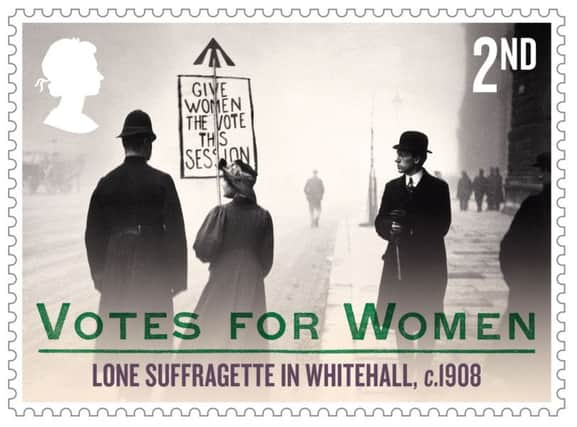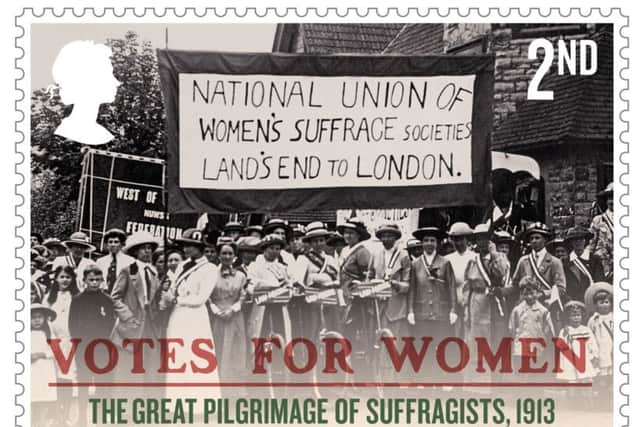Stamp of approval for law that put women on (not quite) equal terms


Royal Mail did not say whether it had noticed the irony of choosing the anniversary to release pictures of their suffragettes on second-class stamps.
The images are part of set of eight marking the passage of the Representation of the People Act, which also extended the vote to all men over 21. One of the pictures shows a suffragette demonstrating in Whitehall, around 1908, and having to walk in the road because of a ban on pavement protests. She faced being arrested for obstruction if caught.
Advertisement
Hide AdAdvertisement
Hide AdA second stamp depicts a National Union of Women’s Suffrage march from Land’s End to London in 1913.


The set, which goes on sale next week, also includes first class and parcel post stamps with a face value of up to £1.57. They feature images of suffragettes Mary Leigh and Edith New, and a group picture including Christabel Pankhurst.
The 1918 act introduced a two-tier system to voting, not unlike the current postal system – which will this autumn mark its own 50th anniversary.
While it abolished property qualifications for men, women were required to occupy premises of a yearly value of £5 to qualify for the vote. It would be another decade before the Equal Franchise Act finally put women on the same terms as men.
Advertisement
Hide AdAdvertisement
Hide AdLiz Law, of the Royal Mail, said: “Our Votes for Women stamps convey the scale of activities that the different organisations undertook in their tireless campaigning for the vote.
“We are proud to mark the anniversary of an Act that has given women across the generations the opportunity to have their voices heard.”